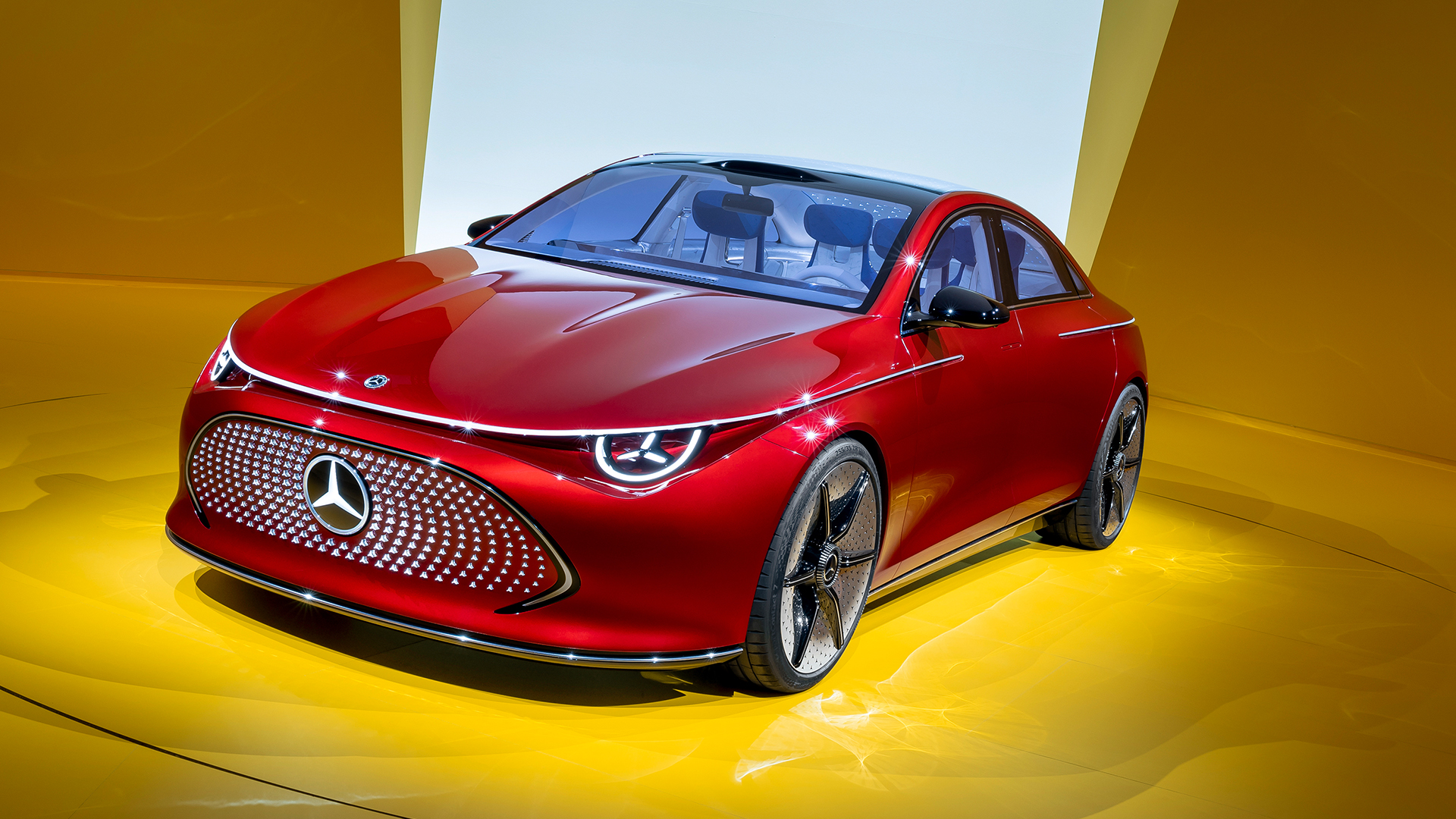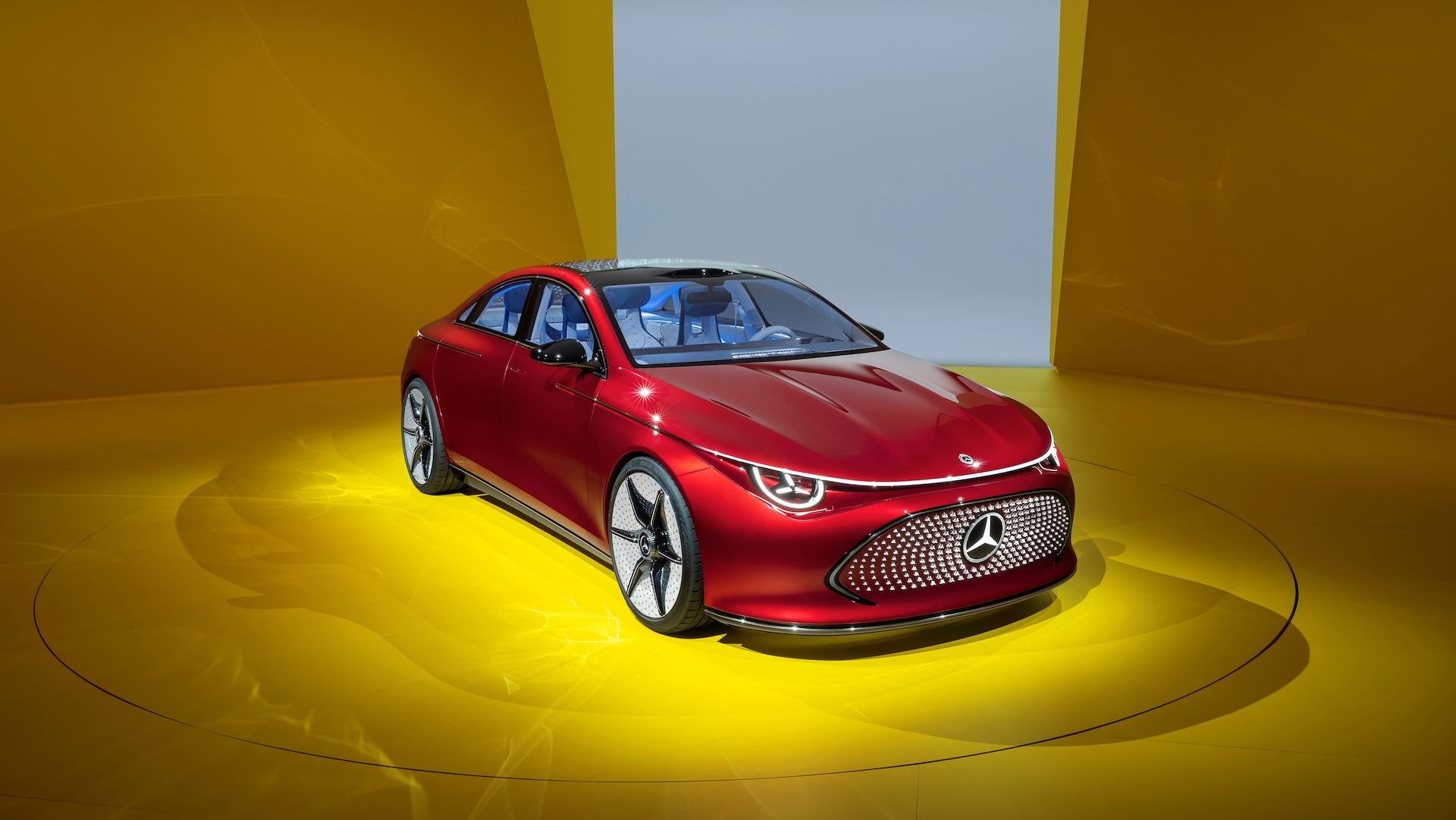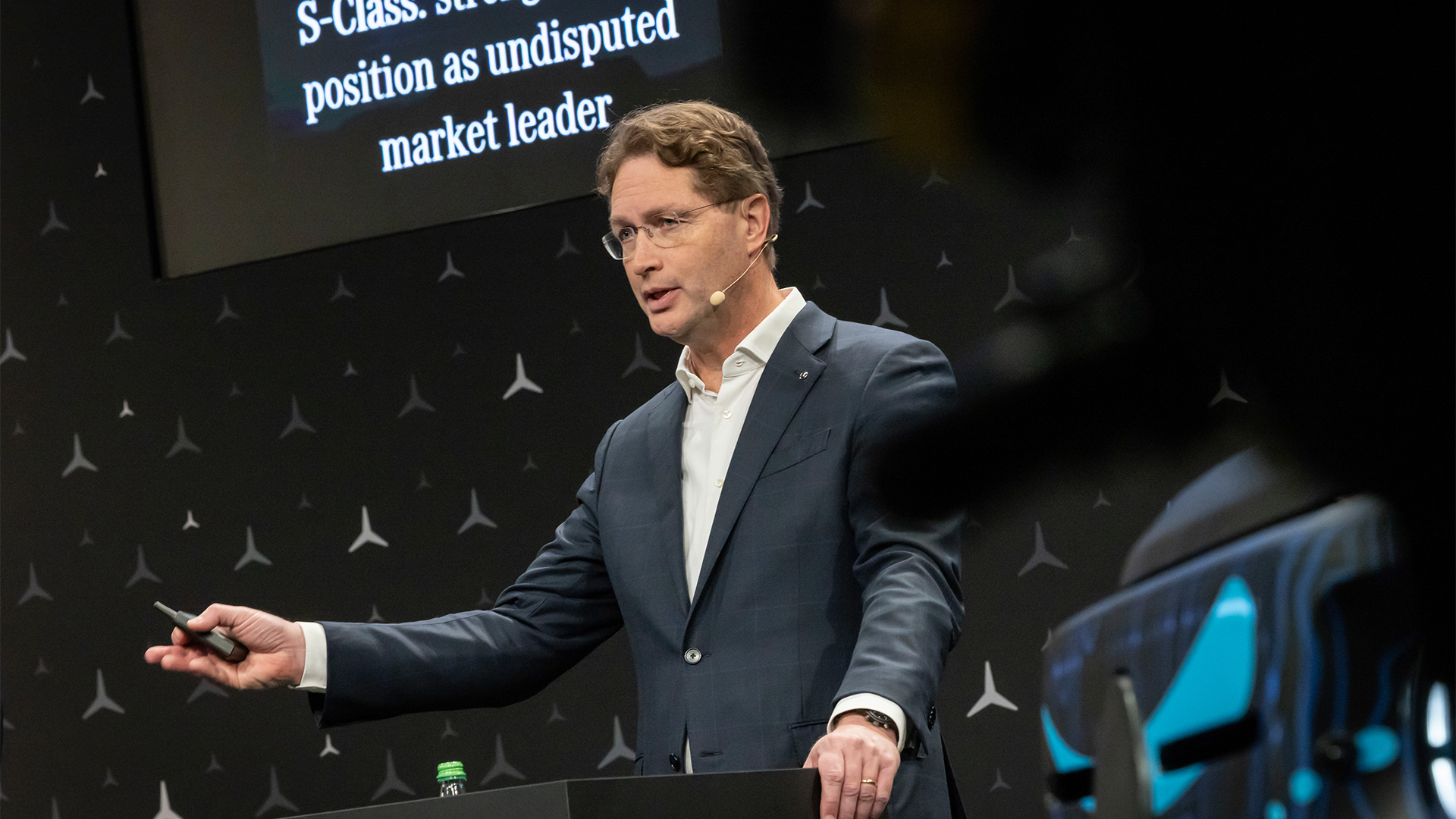EVs hit traffic as Mercedes backs away from plan to go electric-only by 2030
German marque will offer combustion engines into next decade

Sign up for breaking news, reviews, opinion, top tech deals, and more.
You are now subscribed
Your newsletter sign-up was successful
Mercedes Benz has backtracked on its previous plan to go all-electric by 2030, with the car giant now saying that it'll continue to offer a mix of EVs and combustion engine cars well into the next decade.
Many automotive giants have set themselves hard targets to deliver an electric-only model range, most of which coincide with numerous government announcements surrounding a ban on the sale of new petrol and diesel cars by 2030 – although that has already been pushed back to 2035 in the UK and other markets.
Mercedes-Benz was one such manufacturer to announce that it would go 'electric only' in 2021, stating that "by the end of the decade, Mercedes-Benz will be ready to go fully electric – wherever market conditions permit."
But it seems that current market conditions have forced a backtrack on the statement, as Ola Källenius, the group's CEO, claims that an era where EVs would cost the same as an equivalent petrol or diesel car is still “many years away”, according to The Telegraph.
He added: "The company plans to be in a position to cater to different customer needs, whether it’s an all-electric drivetrain or an electrified combustion engine, until well into the 2030s".

In fact, Mercedes predicts that electric and plug-in hybrid vehicles will only make up around 50 per cent of the brand’s overall sales by the late 2020s, which is a massive decrease on the confident prediction of three years ago.
The news from the German automotive giant follows a number of announcements from other major brands that have recently eased off the gas when it comes to EV plans.
Sign up for breaking news, reviews, opinion, top tech deals, and more.
Ford paused a $12 billion investment in new EV manufacturing capability while it gets a handle on the market (hybrids have really taken off for the Blue Oval). Meanwhile, GM keeps pushing back production of its all-electric trucks and some large-scale fleet operators have started backtracking on mass adoption of EVs as the plummeting residual values are killing business.
Have EVs run out of juice?

On the surface, it appears that public appetite for the electric vehicle is waning, but the overall sales figures paint a different picture.
EVs are on track to hit 9 per cent of all cars sold in the US, with some analysts predicting that could be as high as 13 per cent – or just under 1.9 million units.
Bloomberg predicts 16.7 million EVs will be sold globally in 2024, a 22 per cent growth figure over the previous year, with sales in the subsequent two years potentially spiking thanks to the introduction of a slew of more affordable models from a number of manufacturers.
Mercedes’ recent announcement seems like a bold backtrack, but it looks as if the company is hedging its bets, re-forecasting a very ambitious target based on its current customer behavior.
As Ford found with its customers' recent sway towards hybrids, converting the mass market is proving a lot harder now most of the early adopters have EVs. They are generally more skeptical of the charging infrastructure and distinctly more price-savvy.
Currently, much of the EV offering across the board is still very expensive, while hedging bets with modern hybrids, which can now manage a decent range on electric power only, feels like a sensible middle-ground for many. This is a point Toyota CEO, Akio Toyoda, has been making for years.
Mercedes-Benz appears to be reacting to this issue, offering its customers the option of an internal combustion engine mated to electrification in order to smooth the transition to pure EV.
After all, the race towards a fully electric future has always been viewed as a marathon, not a sprint, despite many governments’ bullish plans to speed up adoption.
You might also like

Leon has been navigating a world where automotive and tech collide for almost 20 years, reporting on everything from in-car entertainment to robotised manufacturing plants. Currently, EVs are the focus of his attentions, but give it a few years and it will be electric vertical take-off and landing craft. Outside of work hours, he can be found tinkering with distinctly analogue motorcycles, because electric motors are no replacement for an old Honda inline four.